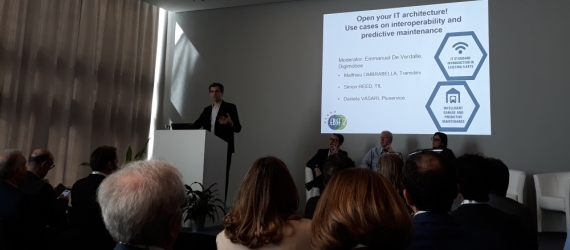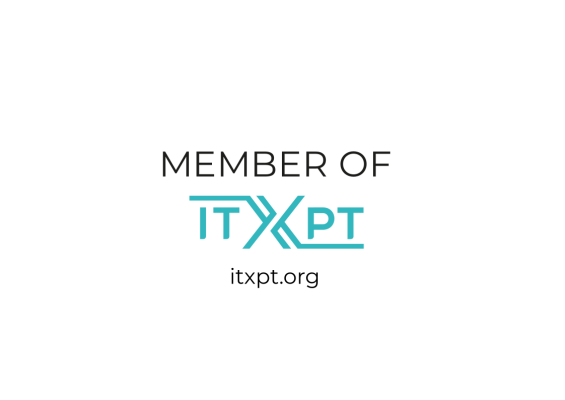
The event took place on 18 March during Transport Research Arena 2018 in Vienna and attracted more than 80 participants, during which the results of the EBSF_2 project were summarised as well as lines of further development were highlighted. Diverse types of bus fleet were tested during the project, together with 31 solutions, 200 buses and 50 bus lines and 600 drivers involved. As far as the further evolution is concerned, it was underlined that the focus should be given to electrification, automation and connectivity, a dream combination to be brought on the road.During the conference ITxPT was referred to several times since this is the initial EBSF project that triggered off the formation of the ITxPT Association.
The Round Table discussion ‘Open your IT architecture! Use cases on interoperability and predictive maintenance’ focused on the ITxPT and the EBSF_2 demo where the ITxPT specifications have been deployed in operation. Moreover, key results from EBSF_2 sites (London, Ravenna and Paris) were presented. Emmanuel de Verdalle (EBSF_2 research Advisor from Digimobee) was moderating the discussion, whereas Matthieu Ombrabella (Directeur de parc France from Transdev), Simon Reed (Head of Technology & Data Surface Transport from TfL) and Daniela Vasari (Project Manager from Pluservice) were Round Table speakers.
London demonstration performed the first introduction of standardised IT architecture (in line with ITxPT specifications) in a complex multi-supplier environment. The tests focused on on-bus installation and interoperability of on board intelligent transport systems (ITS), ITS back offices and over the air IT interfaces.
The biggest challenge for EBSF_2 project was to make it work in the everyday environment and not just testing environment. “We are really interested in ITxPT and further implementation of ITxPT specifications, but we need to test and integrate the modules first, then we can let them operate in the working environment”, said Simon Reed.
When asked about next steps for Tfl, he added: “We usually bought systems only from one supplier, whereas now we would like to break away from that and cooperate with different suppliers in order to achieve cost efficiencies”.
In Ravenna, the demonstration tested predictive maintenance solutions and based on oil quality sensors. Combined with budget management, these systems aim to extend the life of engine components, reduce failures, foresee and optimise the expenditure items for vehicle maintenance.
The Intelligent Garage project in Paris Area demonstrated interoperability of tele-diagnostic systems in a multi-supplier environment, based on open IT standard protocols. The Intelligent Garage system collects technical data from the vehicles in real time, which are analysed in back office to enable smart monitoring of the fleet.
ITxPT has been involved in EBSF_2 project and all the aforementioned demonstrations as the technical IT framework offering IT interoperability. If you would like to know more details about the ITxPT involvement or the Initiative itself, please contact Anders Selling at: anders.selling@itxpt.org.

